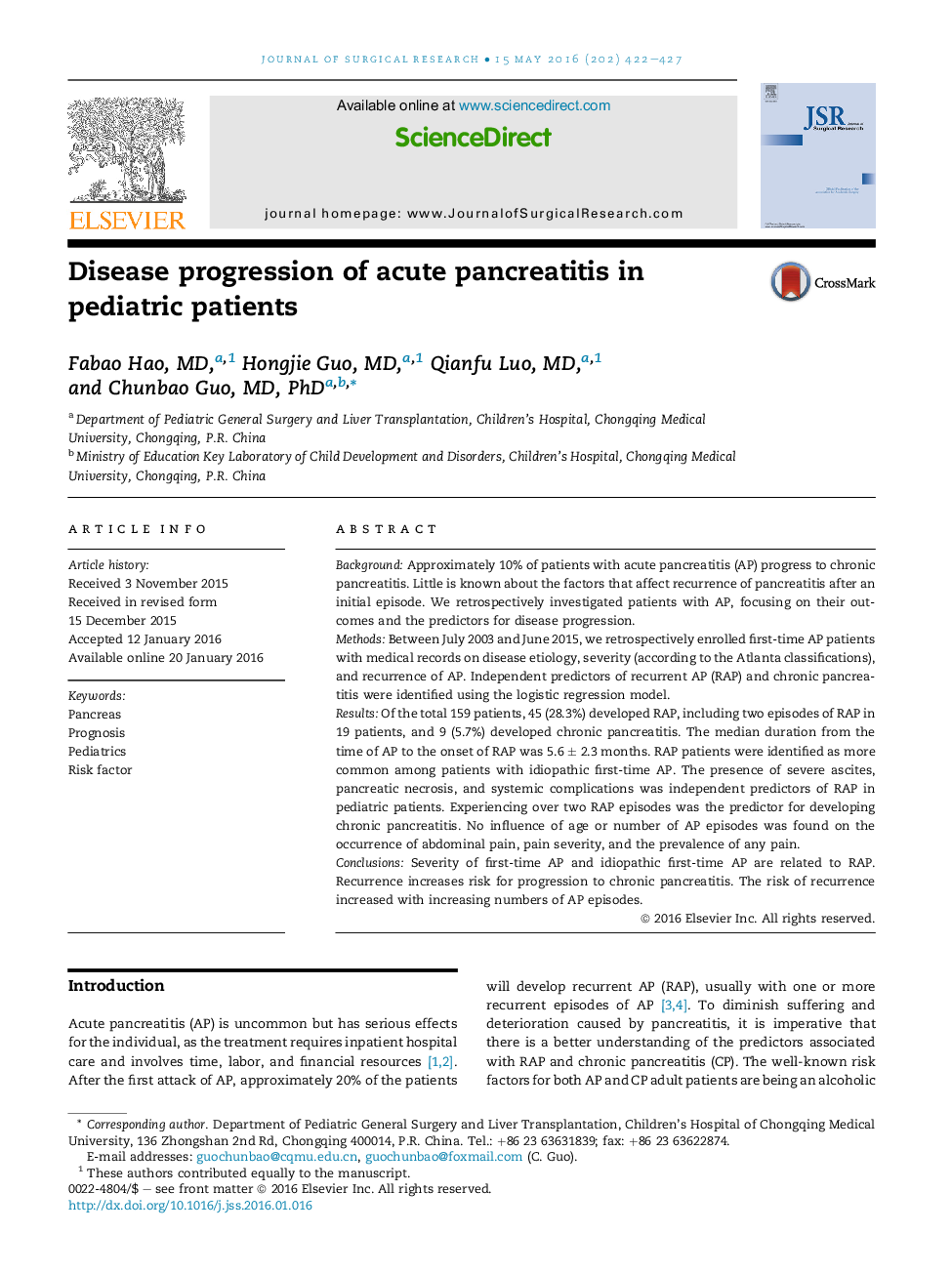| Article ID | Journal | Published Year | Pages | File Type |
|---|---|---|---|---|
| 4299234 | Journal of Surgical Research | 2016 | 6 Pages |
BackgroundApproximately 10% of patients with acute pancreatitis (AP) progress to chronic pancreatitis. Little is known about the factors that affect recurrence of pancreatitis after an initial episode. We retrospectively investigated patients with AP, focusing on their outcomes and the predictors for disease progression.MethodsBetween July 2003 and June 2015, we retrospectively enrolled first-time AP patients with medical records on disease etiology, severity (according to the Atlanta classifications), and recurrence of AP. Independent predictors of recurrent AP (RAP) and chronic pancreatitis were identified using the logistic regression model.ResultsOf the total 159 patients, 45 (28.3%) developed RAP, including two episodes of RAP in 19 patients, and 9 (5.7%) developed chronic pancreatitis. The median duration from the time of AP to the onset of RAP was 5.6 ± 2.3 months. RAP patients were identified as more common among patients with idiopathic first-time AP. The presence of severe ascites, pancreatic necrosis, and systemic complications was independent predictors of RAP in pediatric patients. Experiencing over two RAP episodes was the predictor for developing chronic pancreatitis. No influence of age or number of AP episodes was found on the occurrence of abdominal pain, pain severity, and the prevalence of any pain.ConclusionsSeverity of first-time AP and idiopathic first-time AP are related to RAP. Recurrence increases risk for progression to chronic pancreatitis. The risk of recurrence increased with increasing numbers of AP episodes.
